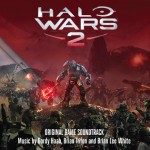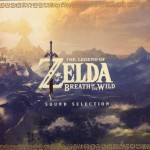The true Dark Souls starts next week, and you may or may not have heard by now that Demon’s Souls composer Shinsuke Kida did not work on Dark Souls. As it turns out, Motoi Sakuraba is responsible for the game’s soundtrack, and he’s brought along our favorite vocalist Emi Evans along for the ride.
So, does Sakuraba bring his progressive rock stylings to the mix, or does he follow in Shinsuke Kida’s epic orchestral footsteps? Is it worth your money to pick up the limited edition version of the game just to get your hands on the soundtrack?
Find out in our review after the jump.
First off, I wasn’t the biggest fan of the Demon’s Souls soundtrack. That is, before I played the game. It was Gideon’s top pick for Soundtrack of the Year in our 2009 awards, and I didn’t think much of it. However, I played through the entire game last summer, and the soundtrack has been on constant rotation for me ever since.
I did get my hands on the demo build at E3 this year, and only heard one song from the game. The soundtrack is presented in a similar fashion to Demon’s Souls in that the game’s areas are mostly silent, and each boss is given his own theme. There are exceptions, like for the central hub area and some cinematic scenes. But you’ll be even more surprised to hear that Sakuraba stays true to the style established by Kida, and does not let his progressive rock influences creep in.
It all begins with “Prologue,” which will have you saying to yourself, “Wait, this is Motoi Sakuraba?” with its dark, tense, and even dissonant soundscape. Sakuraba continues the choral tradition of Kida’s prologue here, and the addition of throaty male voices (similar to what was heard in Cursed Mountain) are a nice touch.
The game’s central hub, “Firelink Shrine,” sounds desperate with string swells and a melancholy harp progression, and similar in style and instrumentation to the nexus theme from Demon’s Souls (“Maiden in Black”).
From there, it’s on to the boss themes. I’ll call some of them out by name, but will refrain on others to prevent spoilers. For the most part, the boss themes are bombastic orchestral affairs with lots of brass, crash cymbals, and chaotic swirls of strings. “Bell Gargoyl,” however, stands out for its horrific string scratches, showing that Sakuraba has learned a thing or two about working with an orchestra over the years.
Sakuraba does a lot of interesting things with his tracks as well. “Pinwheel” sports an exotic melody backed by the incessant sound of whispering, creating an incredibly unsettling soundscape, while the strange chirping sound effects in “Centipede Demon” are maddening. “The Ancient Dragon” features only bass-heavy male choir and little else outside of the occasional guttural bass drum hit, really highlighting the “ancient” aspect of the foe. Lastly, “Ornstein & Smough” comes as a triumphant fantasy theme, complete with an ascending melody and some awesome organ work.
It’s not all dark and dreary, however, as “Daughters of Chaos” features a beautifully seductive siren-like quality with several female voices and some lovely string swells. Later, two complementary bosses stand out for their contrast with one being bright, vibrant, and even angelic, and the other bittersweet and melancholy. Also of note is “Great Grey Wolf Sif” which has a distinct ballet-like quality about it, proceeding with alternating intense and almost whimsical moments. It’s during these brighter moments that traditional Sakuraba shows through, bringing his melodic fantasy score to the forefront. I can’t wait to see how this one works in the game.
Some of the final bosses also stand out, including one with a howling choir section and extensive use of harpsichord, sounding like something out of King’s Field, and another that sports what sounds to be a marimba, twisting what should be a playful instrument into something grotesque. The final boss theme on the album is a rare treat, coming as a rich piano (only) ballad with a hint of desperation tucked away within its many notes. The piano itself sounds as though the sustain pedal is stuck, allowing everything to run together a sloppily yet intentionally, creating a cool effect.
The final track on the album is the one many have been waiting for. “Nameless Song” features Emi Evan’s angelic voice reverberating through a contemplative musical backing. Her voice carries a reflective melody that looks back on all the horrors encountered up that this point. Towards the end, an emotional outburst from the strings section allows for a single serene moment among the darkness found throughout the score.
Overall, I’m impressed with Sakuraba’s efforts not only because he manages to stay true to the musical soundscape that Kida established, but also because he’s doing something different, and even doing it well. I can’t say the soundtrack speaks to me as much as Demon’s Souls does now, but I imagine that will all change once I get further into the game. Emi Evans is a great inclusion, and I know a lot of fan will be interested in this score based on her sole contribution (and there aren’t even lyrics!).
I think this soundtrack is definitely worth picking up the collector’s edition of the game for, as it also comes with a snazzy art book and some other goods. The game’s out next week in North America, so get ready to die, but enjoy what you’re listening to while doing so.
Are you surprised to hear that Sakuraba is responsible for Dark Souls and that Emi Evans has joined him? Will you be picking up the collector’s edition next week?
Tags: Collector's Edition, Dark Souls, Emi Evans, FROM SOFTWARE, Motoi Sakuraba, Music Reviews, Namco Bandai, Previews, Reviews









































I only found out that it was Sakuraba-san only about a week ago or so. I think that it’s great that he follows closely to the sound from Demon’s Souls. I preordered the Limited Edition back when it was finally announced. I should have it Tuesday afternoon and with my vacation this week, I’ll be occupied with Dark Souls and i’m currently having a blast with Ico and Shadow of the Colossus